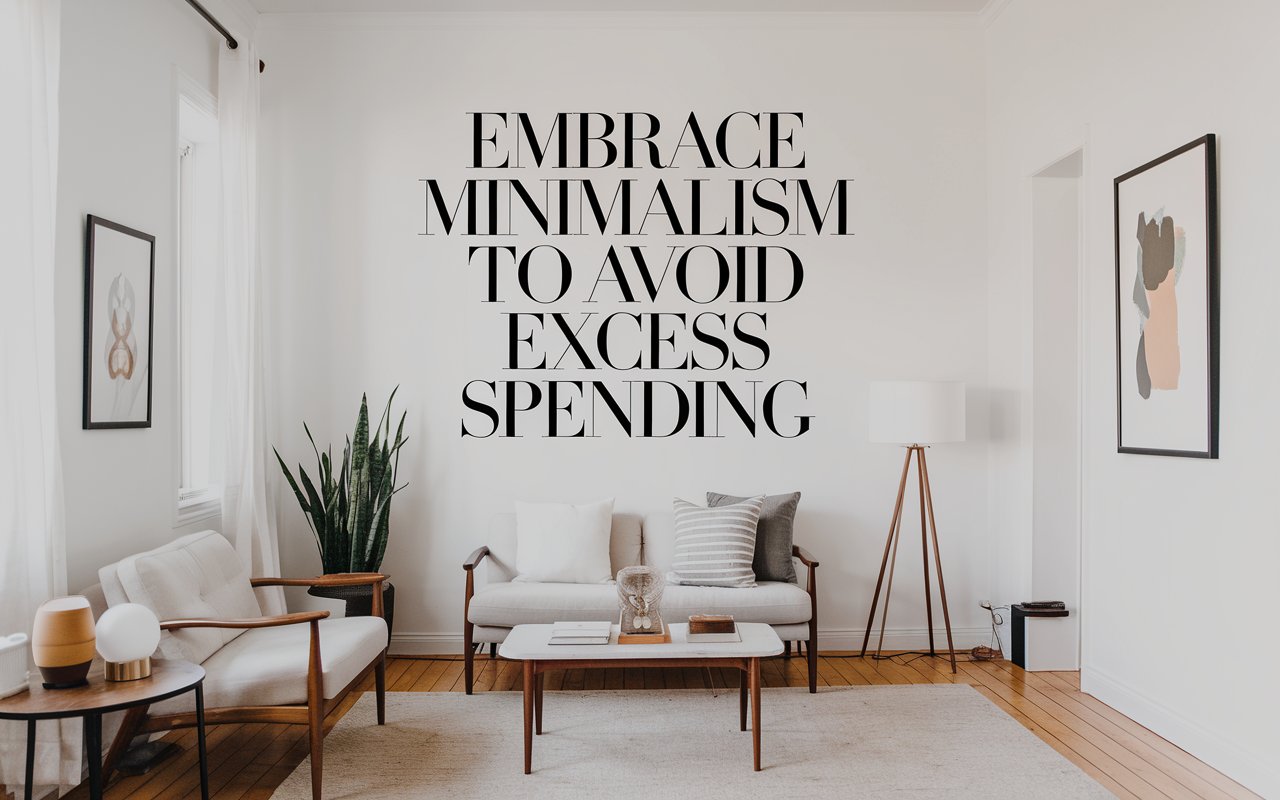Embrace Minimalism offers a fresh approach to managing finances.
With rising living costs, avoiding unnecessary spending is more essential than ever.
Embracing a minimalist lifestyle goes beyond owning fewer items; it’s about making intentional choices that focus on value over volume.
This approach simplifies life and can greatly impact financial well-being by reducing impulse purchases and wasteful habits.
Why Minimalism Matters in Today’s Economy
Our current economy challenges us daily. Prices rise, and pressures to consume are everywhere.
Advertising urges us to buy the latest items, even when we don’t need them.
This spending can lead to financial strain, credit card debt, and cluttered homes.
Minimalism helps cut through this by focusing on essentials and reducing impulsive purchases.
Many people today face higher living costs, which can easily push them toward overspending.
A minimalist approach helps us understand the difference between needs and wants, especially when managing money.
For example, according to recent data, Americans spend over $1,500 yearly on non-essential items.
By practicing minimalism, we can cut these costs significantly.
Minimalism is more than a trend; it’s a tool for resisting societal pressure to buy more.
It helps us prioritize quality over quantity, focusing on things that serve a real purpose.
Minimalism is not just about less; it’s about more freedom from financial stress.
Read More: Frugal Living Tips for a Better Budget

Key Benefits of Minimalism for Financial Health
Minimalism impacts financial health in powerful ways.
It lowers expenses and reduces debt by encouraging mindful purchasing.
Instead of buying items we rarely use, minimalism teaches us to make intentional choices.
This shift helps us save money and build stronger financial habits.
One significant benefit is the reduction in unnecessary purchases. We often buy things we think we need but don’t.
Minimalism focuses on the essentials, cutting out items that serve no purpose.
The money saved here can go into savings or even investments, setting up a better future.
Minimalism also decreases credit card debt. Many minimalists find they rely less on credit to fund their lifestyle.
With a reduced desire for “extra,” credit card use naturally declines.
A minimalist lifestyle aligns with frugal living because it values experience and quality over material possessions.
Here’s a simple table comparing minimalism’s benefits for financial health:
| Financial Area | Minimalist Benefit |
| Monthly Expenses | Reduces unnecessary costs |
| Debt Levels | Decreases reliance on credit |
| Savings Opportunities | Increases funds for future |
| Budget Control | Focuses on essential spending |
By embracing minimalism, we can develop a healthier, more sustainable financial outlook.
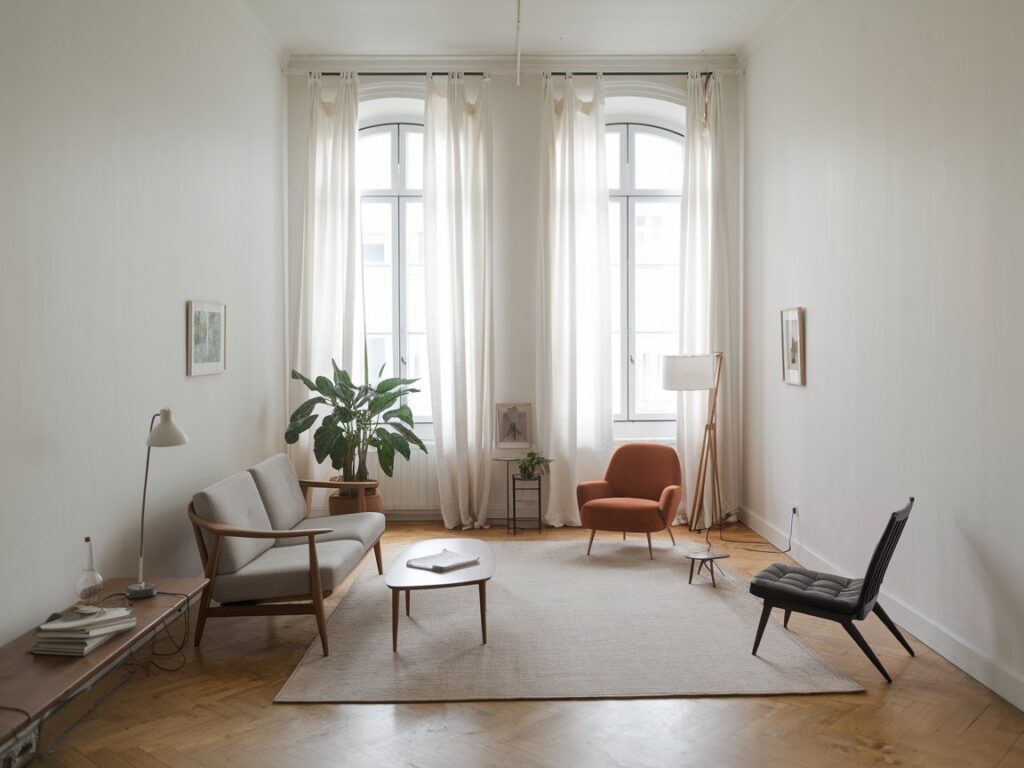
How Minimalism Changes Spending Habits
Minimalism creates lasting changes in our spending habits.
Instead of buying on impulse, minimalism encourages thoughtful consideration.
This lifestyle helps us question each purchase by asking, “Do I truly need this?” This question alone saves many from costly purchases.
In a minimalist lifestyle, we see that happiness doesn’t come from owning things.
This view encourages us to spend on experiences rather than things.
For example, rather than buying the latest smartphone, a minimalist might prioritize a trip or a memorable dinner.
This shift reduces excess spending and promotes personal satisfaction.
Minimalism also makes budgeting easier. By reducing what we own, we can make budgets simpler and more manageable.
Every item we buy has a purpose, so there’s no guesswork.
This approach leads to more thoughtful spending, encouraging us to invest in items that add real value.
Minimalism changes our perspective on spending, making us wiser with our money.
It’s not just about spending less; it’s about spending with purpose.
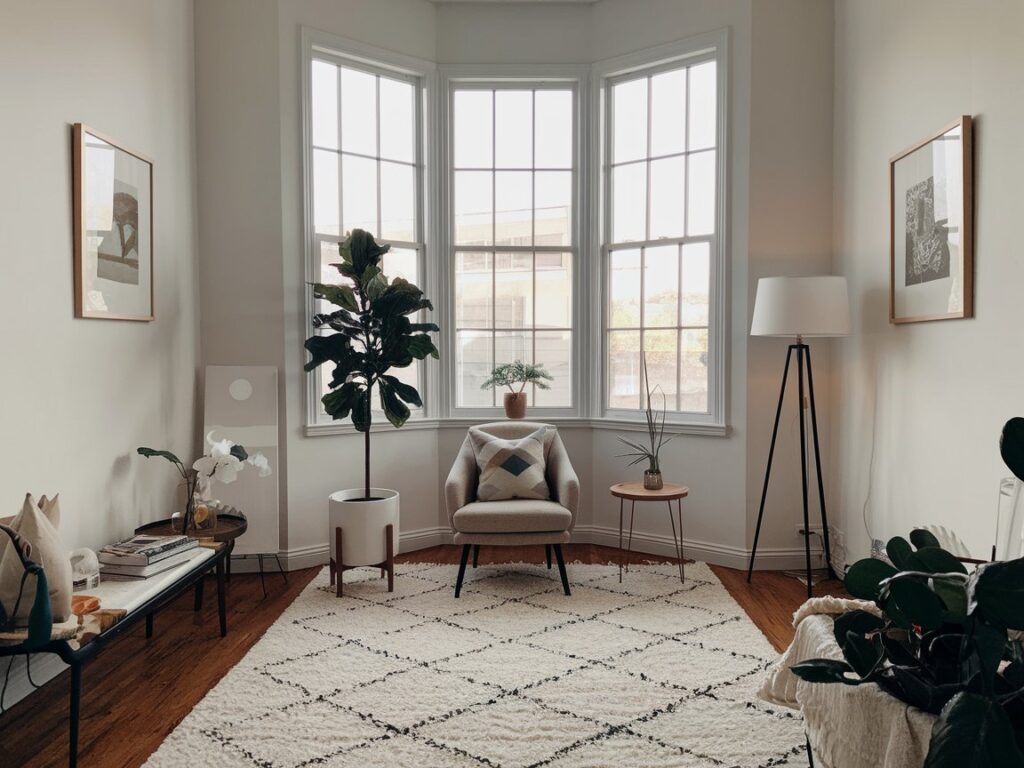
Practical Ways to Embrace Minimalism
Adopting minimalism doesn’t require a drastic lifestyle overhaul. Small changes can make a big difference.
Start by decluttering. Go through your items and remove those you don’t use.
Minimalism is about creating space, so only keep what you genuinely need.
Another practical step is to budget mindfully. Create a budget that only includes essentials.
Cut out subscriptions or memberships that aren’t necessary. This will make a noticeable difference in your spending and savings.
A helpful method is the “one-in, one-out” rule. For every new item, remove one old item.
This rule keeps your belongings in balance and prevents clutter from accumulating.
It’s a small but effective step to ensure that every item you own has a purpose.
Embrace minimalism in your social activities, too. Instead of expensive outings, opt for simpler gatherings or free activities.
Minimalism is not just for our homes but also for our social lives, helping us enjoy more without spending more.

Challenges and How to Overcome Them
Minimalism can be challenging, especially when starting.
Breaking habits of impulse buying and embracing simplicity takes time.
However, small, gradual changes make this journey easier.
Start by setting realistic goals, like reducing your spending on specific items each month.
Another challenge is the emotional attachment to possessions.
Sentimental items can be tough to part with, even if they no longer serve a purpose.
One solution is to focus on the memories they represent, not the items themselves.
Take photos of sentimental items to keep their memories while freeing up space.
Another hurdle is societal pressure. We live in a world that celebrates consumption.
To overcome this, remember that minimalism is about personal satisfaction, not trends.
By focusing on the benefits, you can stay motivated and resist the urge to buy unnecessarily.
Minimalism isn’t always easy, but with patience and a few strategies, it becomes a fulfilling way to live.

Impact on Long-Term Sustainability and Future Generations
Minimalism doesn’t only impact personal finances; it also benefits the planet.
When we buy less, we reduce waste and conserve resources.
By choosing quality over quantity, we minimize the environmental impact of our purchases.
This approach benefits future generations by promoting sustainable practices.
It encourages us to buy products that last longer, reducing the cycle of disposal and replacement.
According to recent studies, the average American throws away nearly 81 pounds of clothing per year.
Minimalism can help lower this number significantly. Minimalism also supports ethical consumerism.
By buying only what we need, we can support brands that prioritize sustainable practices.
This creates a ripple effect, encouraging more companies to adopt eco-friendly methods.
Through minimalism, we can contribute to a better world, ensuring a healthy environment for the next generation.
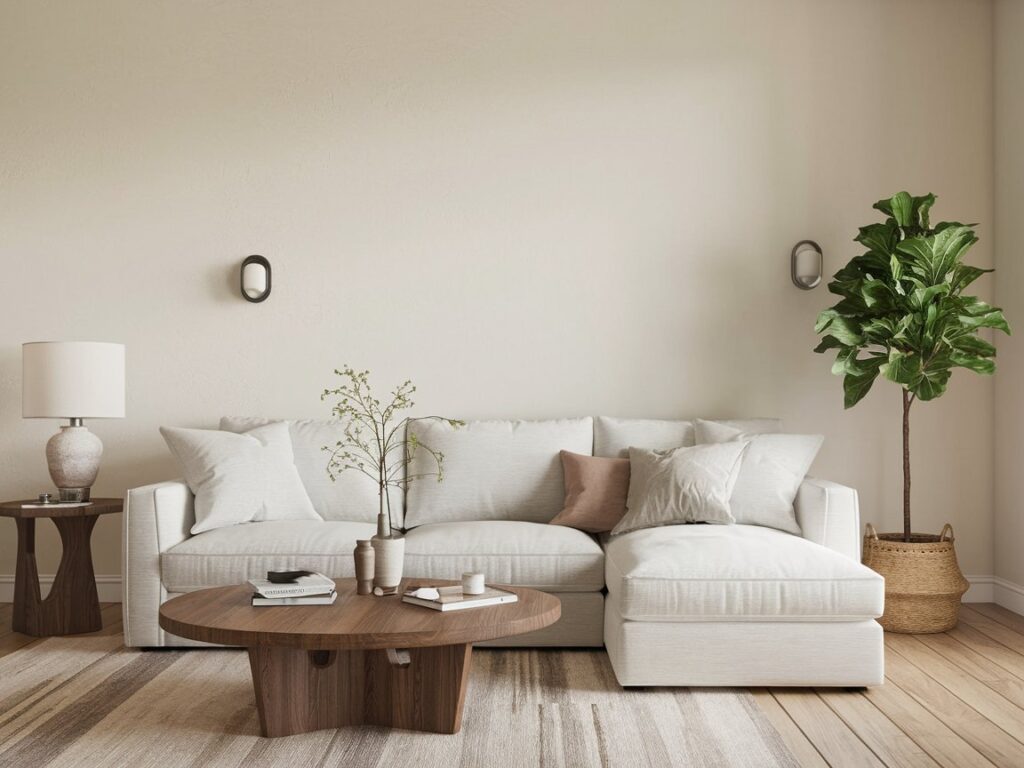
Minimalism as a Path to Financial and Emotional Freedom
Minimalism provides more than just financial benefits. It also fosters emotional well-being.
By reducing physical clutter, we clear mental space. This can lead to less stress, better focus, and a stronger sense of control.
A minimalist lifestyle encourages us to find joy in experiences over possessions.
This shift brings emotional freedom, as we are no longer tied to material things.
By living with intention, we gain a deeper appreciation for the present moment.
Minimalism promotes a balanced life that feels grounded.
It helps us spend wisely, save effectively, and enjoy the peace that comes from living with less.
Financial freedom, paired with emotional well-being, creates a rewarding lifestyle.
My Journey to Minimalism
When I first heard about minimalism, I thought it was just about owning fewer things.
But as I embraced it, I realized it was much more. Minimalism helped me find financial clarity, reduce my spending, and improve my emotional well-being.
Letting go of excess possessions brought me peace. My budget became simpler, and my savings grew.
Minimalism allowed me to focus on what truly matters, both financially and emotionally.
By focusing on experiences and essentials, I learned that I didn’t need much to feel fulfilled.
This journey taught me that less is indeed more, and that satisfaction comes from within, not from possessions.
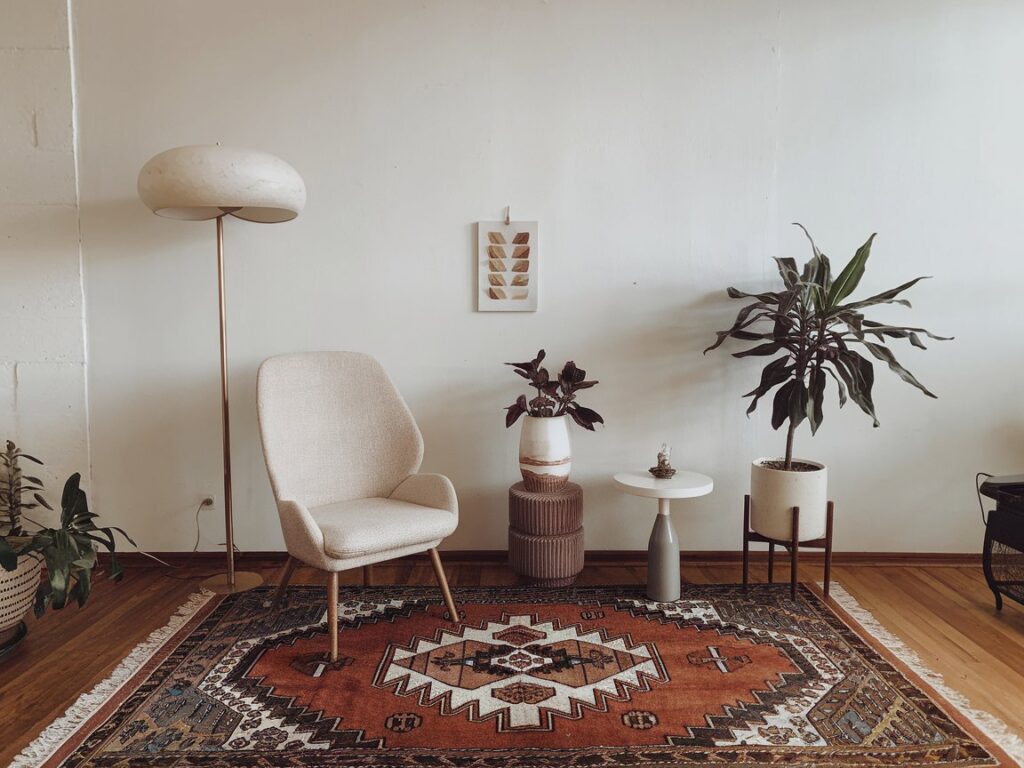
FAQs About Embrace Minimalism
Key Takeaways
- Minimalism reduces clutter and excess spending.
- It helps us focus on essentials and avoid debt.
- A minimalist approach benefits both financial and emotional health.
- It encourages sustainable practices for future generations.
Embracing minimalism is a journey toward a simpler, more intentional life.
By adopting this lifestyle, we can reduce unnecessary spending and gain financial freedom.
Start small, stay focused, and watch how minimalism transforms not just your finances but also your overall well-being.
So, are you ready to take the first step toward minimalism? Start today, and see how living with less can lead to so much more.
